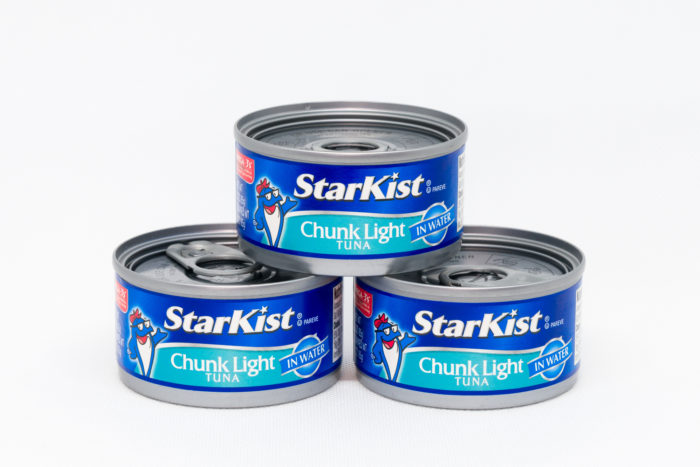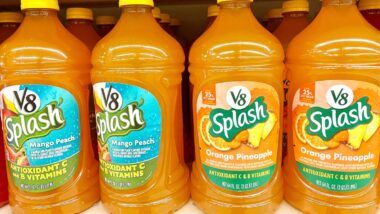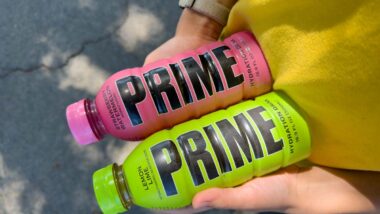Top Class Actions’s website and social media posts use affiliate links. If you make a purchase using such links, we may receive a commission, but it will not result in any additional charges to you. Please review our Affiliate Link Disclosure for more information.

According to three separate class action lawsuits, Nestle Purina Petcare Co., StarKist Co., and Bumble Bee Foods LLC label their products as “Dolphin Safe,” but in reality they use suppliers whose fishing practices endanger the marine mammals.
These companies then skirt compliance with regulators, while telling consumers that they use fishing practices that preserve dolphins, the plaintiffs claim.
The production and manufacture of canned tuna and tuna products came under fire in the 1990s after the public became concerned about the effect of fishing practices on dolphin populations.
According to the plaintiffs, the use of synthetic fishing nets caused millions of dolphins to perish as “unintended bycatch.”
After an activist captured a video of fishers deliberately encircling both tuna and dolphins, hauling the whole catch in and killing the dolphins as a result, there was a worldwide outcry over tuna fishing methods.
As a result, companies began labeling their products as “Dolphin Safe” and touting their improved fishing practices, specifically the pole-and-line method.
“In the ensuing 25 years, U.S. tuna sellers, led by StarKist, implemented a widespread and long-term marketing campaign that continues to this day – representing to consumers that no dolphins were killed or harmed in capturing their tuna, as well as expressing their commitment to sustainably sourcing tuna,” alleges the StarKist class action lawsuit. “StarKist tuna, however, is not dolphin-safe. Nor is it sustainably sourced. StarKist’s dolphin-safe representations are false, misleading, and/or deceptive.”
The tuna class action lawsuits claim that the companies have been sourcing their products from suppliers who use fishing techniques that harm dolphins. The plaintiffs say that the companies have been obscuring regulatory reports and public concern over harmful tuna fishing practices through many layers of confusing business entities.
The specific allegations against Bumble Bee Foods include sourcing its non-premium products from companies that use fishing practices that harm dolphins.
The StarKist class action lawsuit claims that the company sources its tuna from fishers using illegal methods.
While the Purina class action lawsuit claims the company labels its Fancy Feast brand of cat food as “Dolphin Safe,” but uses companies that catch tuna using techniques that hurt or kill the marine mammals.
The plaintiffs in all three class action lawsuits are represented by Patricia N. Syverson and Manfred P. Muecke, Elaine A. Ryan and Carrie A. Laliberte of Bonnet Fairbourn Friedman & Balint PC, Brian D. Penny of Goldman Scarlato & Penny PC, Brian M. Brown of Zaremba Brown PLLC, and Stuart A. Davidson, Christopher C. Gold and Bradley M. Beall of Robbins Geller Rudman & Dowd LLP.
The “Dolphin Safe” Canned Tuna Class Action Lawsuits are Lori Myers, et al. v. Nestle Purina Petcare Company, Case No. 5:19-cv-00898, in the U.S. District Court for the Central District of California, Duggan, et al. v. Bumble Bee Foods LLC, Case No. 4:19-cv-02564, in the U.S. District Court for the Northern District of California, and Gardner, et al. v. Starkist Co., Case No. 4:19-cv-02561, in the U.S. District Court for the Northern District of California.
UPDATE: On Aug. 16, 2019, Bumble Bee Foods asked a federal judge to toss a class action over their “dolphin safe” tuna labeling, arguing that federal law prevails here.
UPDATE 2: On Feb. 3, 2020, in a motion to dismiss a class action lawsuit, StarKist says that consumers do not expect their “dolphin safe” canned tuna labels to mean that the marine mammals are completely safe from fishing practices used to harvest the popular seafood.
ATTORNEY ADVERTISING
Top Class Actions is a Proud Member of the American Bar Association
LEGAL INFORMATION IS NOT LEGAL ADVICE
Top Class Actions Legal Statement
©2008 – 2024 Top Class Actions® LLC
Various Trademarks held by their respective owners
This website is not intended for viewing or usage by European Union citizens.















789 thoughts onTuna Class Actions Lodged Over Fishy ‘Dolphin Safe’ Labeling
My father an i my kids eat this by the can lol please add me
I filed on this years ago. How do I find out if the claim is still valid?
Wow we always buy Starkist Tuna
Add me
I buy this all the time sometimes it smells rancid add me
please add me.
Add me please
Please add me –
Please add me. I always buy the brand name, StarKist tuna for several years now.
This is just a lawsuit. Who is bringing it? What evidence do they have? In this website and the Reuters article about this lawsuit, not a single bit of evidence is offered to support the claim. Here are some facts: the phenomenon of tuna and dolphin schooling together only occurs in the Eastern Pacific, off the coast of Central America. No one knows why but that’s a fact. In the 90’s, to meet the demand for ‘dolphin safe’ tuna, US tuna companies and the US tuna fleet relocated from San Diego to the Western Pacific and completely changed their fishing techniques. Many were not able to make the change and simply went out of business. This is a fact. Research ‘San Diego Tuna Fleet’ if you don’t believe me. Tuna that is caught by the few remaining US flag tuna vessels and processed by the canneries in American Samoa in the Western Pacific is in fact ‘dolphin safe’. BTW, no tuna ever found in a tuna can was ever caught by the indiscriminate ‘drift net’ fishing method. Get your facts straight. Canned tuna is almost always caught with ‘seine nets’. High end canned tuna like albacore is often caught by hook and line. I have no inside knowledge about the complete range of sources for large tuna company’s products. It could be possible one or more companies are careless about some of their sources. I would like to see the evidence. Nonetheless, the US tuna vessels that remain operating are indeed fishing with completely dolphin and mammal safe techniques, in areas where dolphin and tuna are not even found together.
signed- a US tuna fisherman